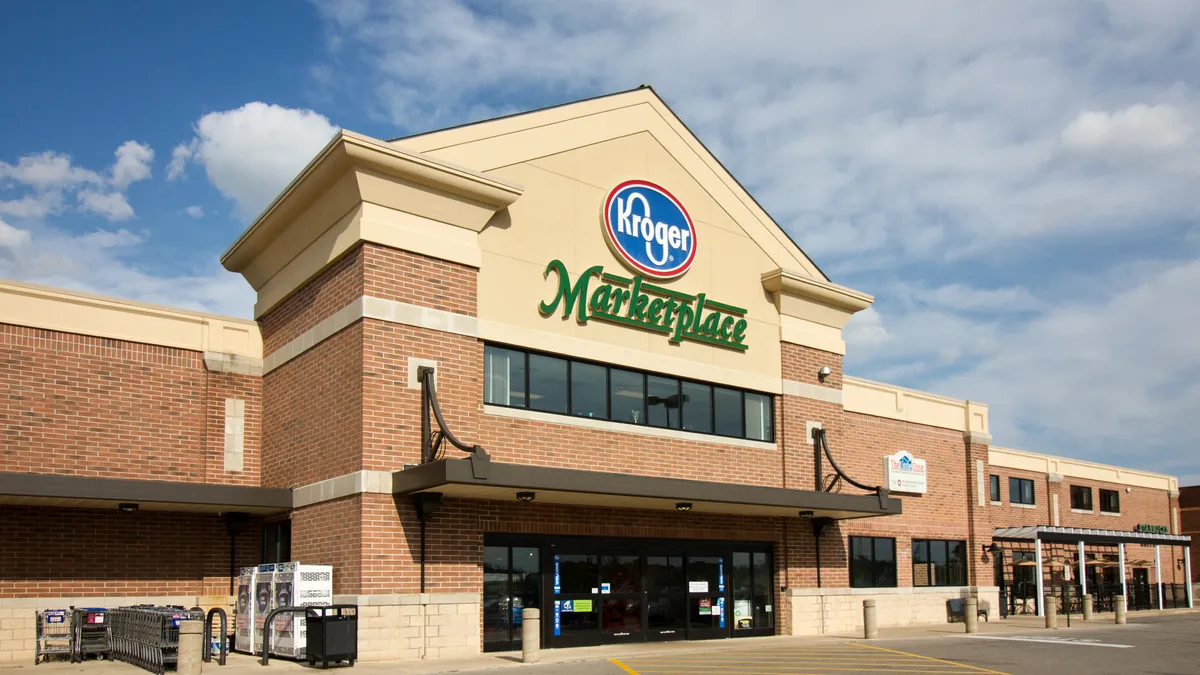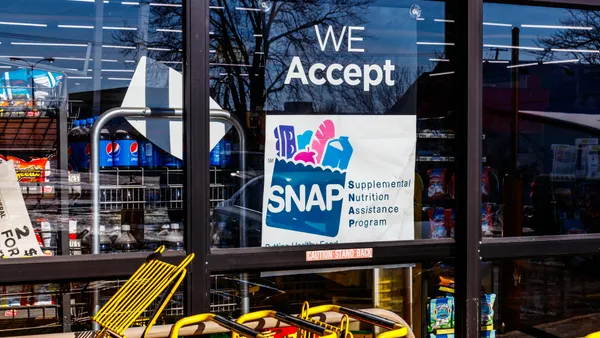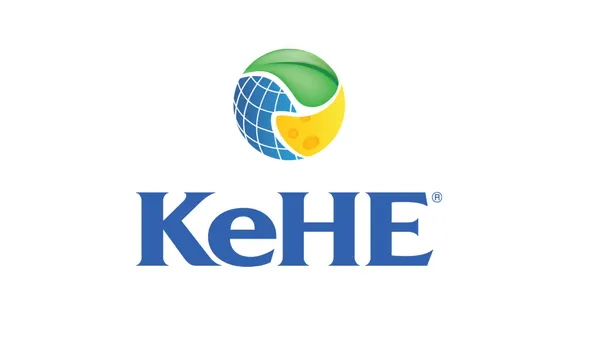Dive Brief:
- Kroger Health, the grocer’s healthcare division, is expanding its COVID-19 testing to more than 220 clinic locations, the company announced in a press release. Testing is by appointment only and is for symptomatic and asymptomatic patients.
- The tests are similar to Kroger’s self-administered collection process that is used at Kroger Health’s community testing locations. It will allow its licensed health providers to increase capability of testing to up to 5,000 patients per day.
- Patients can use a free online screening tool to ensure testing is appropriate and schedule their appointment. Once scheduled, a licensed healthcare professional will contact them via phone or telehealth. Clinics will offer designated parking for patients and most COVID-19 samples can be self-administered in their cars under the observation of a licensed practitioner.
Dive Insight:
Kroger is increasing its testing capabilities to serve more people and gear up for flu season, where COVID-19 testing will become even more crucial because both viruses have similar symptoms.
Since April, Kroger has administered more than 150,000 COVID-19 tests through its drive-thru and walk-up program. This does not include its FDA-authorized COVID-19 test home collection kit, which will gain more traction with the launch of COVIDCare Plus, Kroger’s employer-focused healthcare and wellness program for American companies that provide self-administered tests.
Besides COVID-19, the retailer is ramping up its overall health efforts with the launch of its interactive prescription drug safety course provided to adults for free. The resource is made available through the grocer’s partnership with EVERFI, a social-impact technology company.
Targeting opioid abuse has been a growing focus for many food retailers with pharmacies. In 2018, opioid overdoses were the leading cause of injury-related death in the U.S. and took the lives of more than 67,000 people, according to the CDC. Kroger's new resource provides patients, caregivers and pharmacy employees with 10 modules that cover safe disposal methods, recognizing and recovering from opioid abuse, and supporting friends and family with addiction.
Southeastern Grocers recently launched a program to help pharmacists identity patients that might be abusing opioids by monitoring patients taking the medications and educating them on the side effects of abuse. The grocer also partnered with Safe Rx to allow patients to safely dispose of opioid drugs and prevent misuse.












